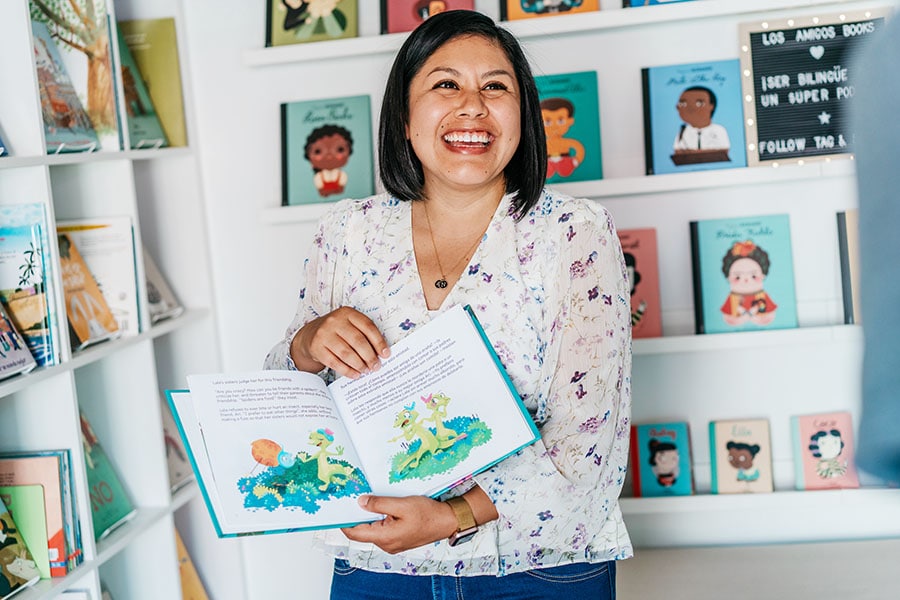
Bookstores are booming and becoming more diverse
Two years ago, the future of independent bookselling looked bleak. Coronavirus forced retailers to shut down and the publishing industry was braced for a blow that could permanently reshape how readers buy books. Instead, something unexpected has happened
 Laura Rodríguez-Romaní, a former dual language elementary school teacher in her Los Amigos Books, which specializes in English and Spanish language children’s books, at the Berwyn Shops retail incubator in Berwyn, Ill., June 30, 2022. More than 300 new independent bookstores that have sprouted across the U.S. in the past couple of years, in a surprising and welcome revival after an early pandemic slump. (Jamie Kelter Davis/The New York Times)
Laura Rodríguez-Romaní, a former dual language elementary school teacher in her Los Amigos Books, which specializes in English and Spanish language children’s books, at the Berwyn Shops retail incubator in Berwyn, Ill., June 30, 2022. More than 300 new independent bookstores that have sprouted across the U.S. in the past couple of years, in a surprising and welcome revival after an early pandemic slump. (Jamie Kelter Davis/The New York Times)
People told Lucy Yu it was a crazy time to open a bookstore in New York City’s Chinatown. It was early 2021, and the pandemic had devastated the neighborhood, forcing dozens of stores and restaurants to close. The rise of anti-Asian hate crimes had shaken residents and local business owners.
But Yu believed that a bookstore was just what the neighborhood needed.
She raised around $20,000 on GoFundMe, enough to rent a narrow storefront — a former funeral supply store — on Mulberry Street in downtown Manhattan. A neighborhood grant gave her $2,000 for shelves and books. And in December, she opened Yu and Me Books, which specializes in titles by and about immigrants and people of color.
The store was profitable within four months, Yu said.
Yu and Me Books is one of more than 300 new independent bookstores that have sprouted across the United States in the past couple of years, in a surprising and welcome revival after an early pandemic slump. And as the number of stores has grown, the bookselling business — traditionally overwhelmingly white — has also become more much more diverse.
©2019 New York Times News Service







